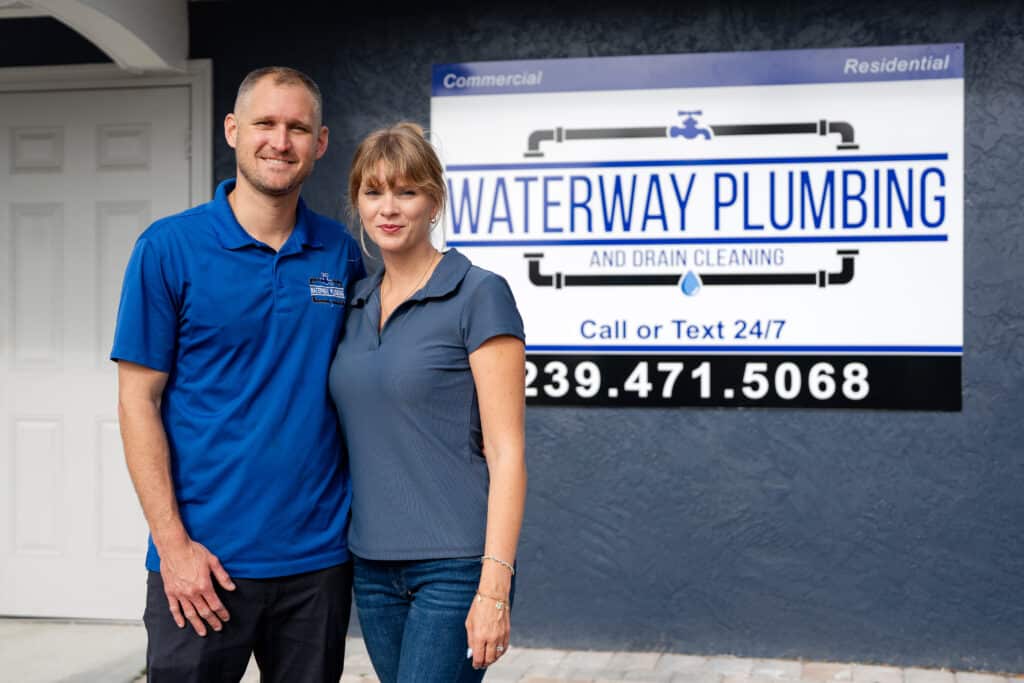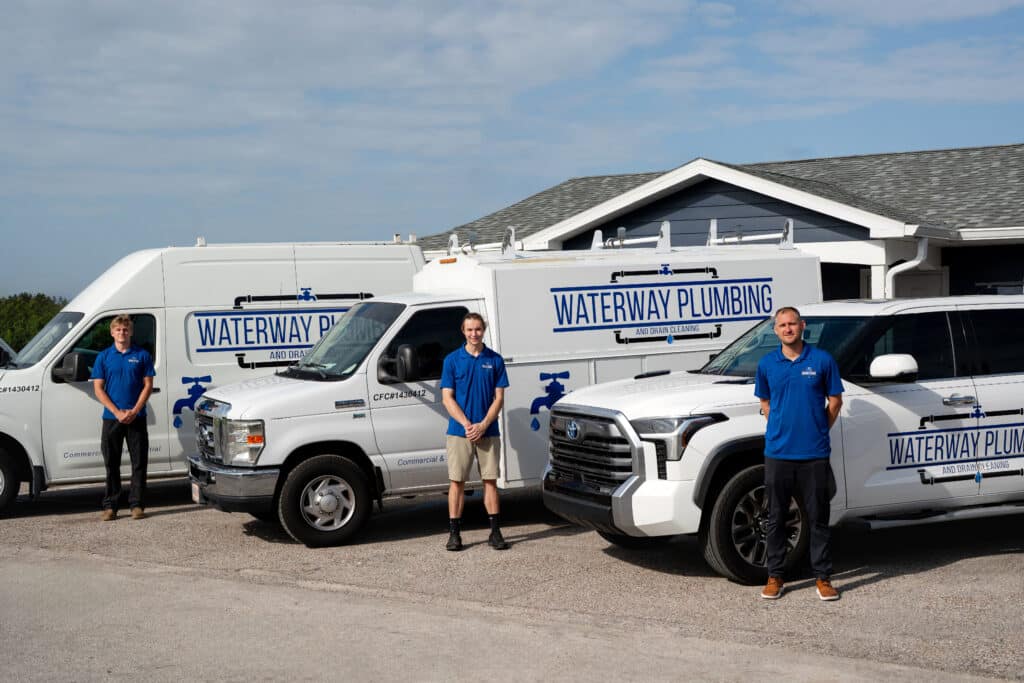Water heaters are one of those things most people don’t think twice about until they stop working. At their best, they quietly handle daily tasks like showers, dishes, and laundry without a second thought. But during the summer months in places like Fort Myers, these appliances can face unexpected stress. And when a water heater goes down in the middle of a hot and humid Florida day, it’s not just an inconvenience. It can throw off the entire routine of a busy household.
There are a few reasons why water heaters are more likely to run into problems during the summer. From higher outdoor temperatures to more people at home using hot water, these months can push a unit past its limits. If you’ve experienced inconsistent water temperatures, odd noises, or a unit that just can’t keep up, it may not be a coincidence. Let’s take a closer look at what’s really going on and how the season impacts water heater performance in Fort Myers.
Increased Demand For Hot Water
While summer may seem like the off-season for hot water, many households end up using more of it during this time. It might be from kids out of school, visiting relatives, or summer guests turning a quiet home into a full house. More showers, more laundry, and more dishes can put a surprising load on a water heater.
Here are a few ways hot water demand tends to spike in summer:
1. Families take more frequent showers after beach days or yard work
2. Vacation homes open up with higher guest traffic
3. Outdoor cleaning and pet washing require warm or hot water
4. Hotter pipes outside or in uninsulated garages waste more resting water
All these added tasks stretch a water heater’s capacity, especially if it’s a smaller tank or older unit. It doesn’t take much for the water temperature to dip or for the heater to start showing signs of strain. You might notice lukewarm water earlier in the day or the system cycling more often to keep up.
When this spike in use combines with hot outdoor temps, it can speed up wear on the heater’s components. If your water heater was already running close to its limit, this extra load could tip it over into failure territory.
High Temperatures And Overheating
Fort Myers summers aren’t shy about delivering high, sticky heat. That intense heat outside often translates to higher temperatures in garages, utility closets, or other places where water heaters sit. These spaces can become hot boxes in the middle of a Florida afternoon, which makes it harder for the water heater to regulate a safe internal temperature.
A water heater is built with safety features, but when summer heat adds to the natural heat generated inside the tank, parts like the thermostat, pressure relief valve, or even the heating elements can wear out faster. One common scenario is overheating, where the unit runs hotter than usual to meet demand or because the thermostat becomes faulty. That can cause warping, internal pressure, or leaking.
Take, for example, a household that keeps the water heater tucked away in a cramped utility closet with no ventilation. If temperatures in that space climb into the 90s, the system may need to work harder to maintain balance. Over time, the heat stress can shorten the lifespan of parts or trigger sudden shutdowns.
Even gas-powered heaters aren’t immune. High ambient air temperatures affect air supply and combustion efficiency. The entire appliance ends up operating in tougher conditions, even if it’s not being used excessively. It’s easy to overlook environmental heat as a factor, but in places like Fort Myers, it’s a major player in summer breakdowns.
Sediment Buildup
Another factor that can trip up a water heater during a Fort Myers summer is the buildup of sediment. Hard water in Florida is common, and it carries minerals that can settle at the bottom of your water heater’s tank. Over time, this sediment creates a barrier between the heating element and the water itself.
As you increase hot water use in the summer for those extra showers and laundry loads, sediment that’s been slowly accumulating becomes a real problem. It forces your water heater to work harder to heat the water through this growing layer of sediment. This extra effort can lead to:
1. Reduced efficiency, as the appliance has to use more energy
2. Less available hot water, since buildup takes up tank space
3. Odd rumbling or popping noises that signal internal pressure issues
Ignoring sediment buildup means your water heater runs the risk of failing when you least expect it. Emptying the tank to flush out sediment is a necessary maintenance task, but many overlook it, especially during busier summer months. This task is better left to professionals, as it requires a level of attention and care that ensures the work gets done the right way.
Lack Of Maintenance
Regular maintenance is important for keeping any mechanical system in good shape, and water heaters are no exception. Unfortunately, maintenance often takes a backseat because a water heater sits out of sight and, frequently, out of mind.
Neglecting routine checks can cause minor issues to snowball into bigger problems, particularly during summer when the system is already under stress from usage and heat. Regular inspections can help spot potential trouble before they cause serious damage, such as faulty thermostats or worn-out valves. Professionals know what to look for and can fix small problems before they escalate.
Here’s why staying on top of maintenance matters:
1. Helps your system last longer, which saves you from replacing it early
2. Catches small issues before they turn into large repairs
3. Makes sure the unit is safe, helping prevent leaks or system strain
Simple checks, like looking for leaks or keeping the area around the heater clear and cool, can do a lot. But professional servicing takes it a step further and gives a full picture of how the system is doing. It’s easier and more cost-effective to keep a unit in good condition than it is to deal with major damage when something fails.
Keep Your Water Heater Summer-Ready
As summer intensifies, taking steps to prepare your water heater can save you from unexpected problems. Staying ahead of possible failures is a smart move. It’s all about spotting early signs and fixing anything that might get worse as the weather heats up.
Pay attention to how your system is performing. If your water suddenly feels lukewarm or you hear strange noises, those signals shouldn’t be ignored. Flushing out sediment, keeping the space around the unit well-ventilated, and having a pro check the system before summer gets too hot are all smart steps.
Wrapping it all up, summer in Fort Myers is tough on water heaters. Between extra use and high temperatures, there’s a lot working against them. But with regular maintenance, proper inspections, and addressing small problems early, you can avoid a breakdown when it matters most. All it takes is a little planning to keep your water heater running well all summer long.
When summer strikes its hardest in Fort Myers and your water heater shows signs of stress, it’s wise to address the issue before it escalates. Understanding and managing the specific challenges, like increased demand, excessive heat, sediment buildup, and skipped maintenance, can save both time and comfort. If you’re experiencing problems, don’t wait. Schedule trusted water heater repair in Fort Myers with Waterway Plumbing & Drain Cleaning. Our team is ready to help ensure your system is running smoothly and efficiently throughout the season.




